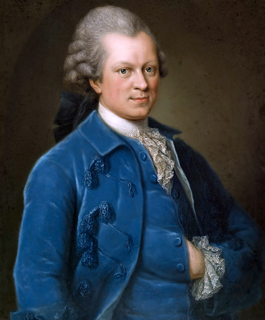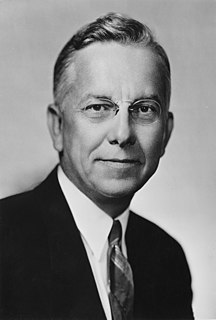A Quote by Victor Hugo
It is those books which a man possesses but does not read which constitute the most suspicious evidence against him.
Related Quotes
The thought of these vast stacks of books would drive him mad: the more he read, the less he seemed to know — the greater the number of the books he read, the greater the immense uncountable number of those which he could never read would seem to be…. The thought that other books were waiting for him tore at his heart forever.
Whilst we assert for ourselves a freedom to embrace, to profess and observe the Religion which we believe to be of divine origin, we cannot deny equal freedom to those whose minds have not yet yielded to the evidence which has convinced us. If this freedom be abused, it is an offense against God, not against man:To God, therefore, not to man, must an account of it be rendered.
The responsibility which rests upon man is proportional to the ability which he possesses and the opportunity which he faces. Perhaps that responsibility is no greater for him than was that of Notharctus or Eohippus or a trilobite, each in his own day, but because of man's unique abilities it is the greatest responsibility that has ever rested upon any of the earth's offspring.
There is a kind of grandeur and respect which the meanest and most insignificant part of mankind endeavor to procure in the little circle of their friends and acquaintance. The poorest mechanic, nay, the man who lives upon common alms, gets him his set of admirers, and delights in that superiority which he enjoys over those who are in some respects beneath him. This ambition, which is natural to the soul of man, might, methinks, receive a very happy turn; and, if it were rightly directed, contribute as much to a person's advantage, as it generally does to his uneasiness and disquiet.
If a man, holding a belief which he was taught in childhood or persuaded of afterwards, keeps down and pushes away any doubts which arise about it in his mind, purposely avoids the reading of books and the company of men that call in question or discuss it, and regards as impious those questions which cannot easily be asked without disturbing it - the life of that man is one long sin against mankind.
He is no true reader who has not experienced the reproachful fascination of the great shelves of unread books, of the libraries at night of which Borges is the fabulist. He is no reader who has not heard, in his inward ear, the call of the hundreds of thousands, of the millions of volumes which stand in the stacks of the British Library asking to be read. For there is in each book a gamble against oblivion, a wager against silence, which can be won only when the book is opened again (but in contrast to man, the book can wait centuries for the hazard of resurrection.)
He is the way, the truth, and the light, and no one can come back into the presence of our Father in heaven except through him. Christ is God the Son and possesses every virtue in its perfection. Therefore, the only measure of true greatness is how close a man can become like Jesus. That man is greatest who is most like Christ, and those who love him most will be most like him.
We are in the position of a little child entering a huge library, whose walls are covered to the ceiling with books in many different languages. The child knows that someone must have written those books. It does not know who or how. It does not understand the the languages in which they are written. The child notes a definite plan in the arrangement of the books, a mysterious order, which it does not comprehend but only dimly suspects.
MORAL LAW, Evidence of.- Man has been subjected by his Creator to the moral law, of which his feelings, or conscience as it is sometimes called, are the evidence with which his Creator has furnished him. ... The moral duties which exist between individual and individual in a state of nature, accompany them into a state of society ... their Maker not having released them from those duties on their forming themselves into a nation.





































